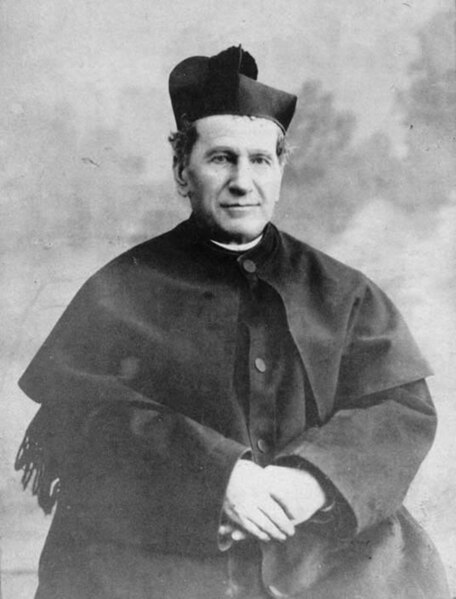Since my teenage years I've had a great admiration for St John Bosco and even gave a passing thought at that time to joining the Salesians, the congregation that he founded.
As a priest I became very familiar with the Second Reading in the Office of Readings on his feast day, 31 January. I have worked with young people in one way or another for most of the more than 45 years that I have been a priest. I see in this letter from St John Bosco his great respect for young people but also his understanding of those who take care of them, teachers, parents and guardians, and of his awareness, no doubt from his own experience, that the same young persons can at times test the patience of those in charge of them.
The word 'discipline' comes from 'discipleship'. It is learning from the example of the mentor how to follow the mentor's way of life. Jesus didn't beat up his disciples, though they often tested his patience and on occasion he scolded them.
Years ago a girl of 15 or so on a weekend retreat in her school, a girls' school run by Sisters, who had been behaving rather immaturely came to me in floods of tears and said, 'My parents give me everything I ask for. But they never ask me how I'm doing in school - and they never even scold me'.
Nobody likes to be scolded but most young people recognise it as an expression of concern, of care, of love - when it's not heavy-handed.
I've always liked that fact that in photos and portraits of St John Bosco his hair is slightly untidy!
St John Bosco (16 August 1851 - 31 January 1888)
I have always laboured out of love |
|---|
First of all, if we wish to appear concerned about the true happiness of our foster children and if we would move them to fulfil their duties, you must never forget that you are taking the place of the parents of these beloved young people. I have always laboured lovingly for them, and carried out my priestly duties with zeal. And the whole Salesian society has done this with me.
My sons, in my long experience very often I had to be convinced of this great truth. It is easier to become angry than to restrain oneself, and to threaten a boy than to persuade him. Yes, indeed, it is more fitting to be persistent in punishing our own impatience and pride than to correct the boys. We must be firm but kind, and be patient with them.
I give you as a model the charity of Paul which he showed to his new converts. They often reduced him to tears and entreaties when he found them lacking docility and even opposing his loving efforts.
See that no one finds you motivated by impetuosity or wilfulness. It is difficult to keep calm when administering punishment, but this must be done if we are to keep ourselves from showing off our authority or spilling out our anger.
Let us regard those boys over whom we have some authority as our own sons. Let us place ourselves in their service. Let us be ashamed to assume an attitude of superiority. Let us not rule over them except for the purpose of serving them better.
This was the method that Jesus used with the apostles. He put up with their ignorance and roughness and even their infidelity. He treated sinners with a kindness and affection that caused some to be shocked, others to be scandalised, and still others to hope for God’s mercy. And so he bade us to be gentle and humble of heart.
They are our sons, and so in correcting their mistakes we must lay aside all anger and restrain it so firmly that it is extinguished entirely.
There must be no hostility in our minds, no contempt in our eyes, no insult on our lips. We must use mercy for the present and have hope for the future, as is fitting for true fathers who are eager for real correction and improvement.
In serious matters it is better to beg God humbly than to send forth a flood of words that will only offend the listeners and have no effect on those who are guilty.


No comments:
Post a Comment